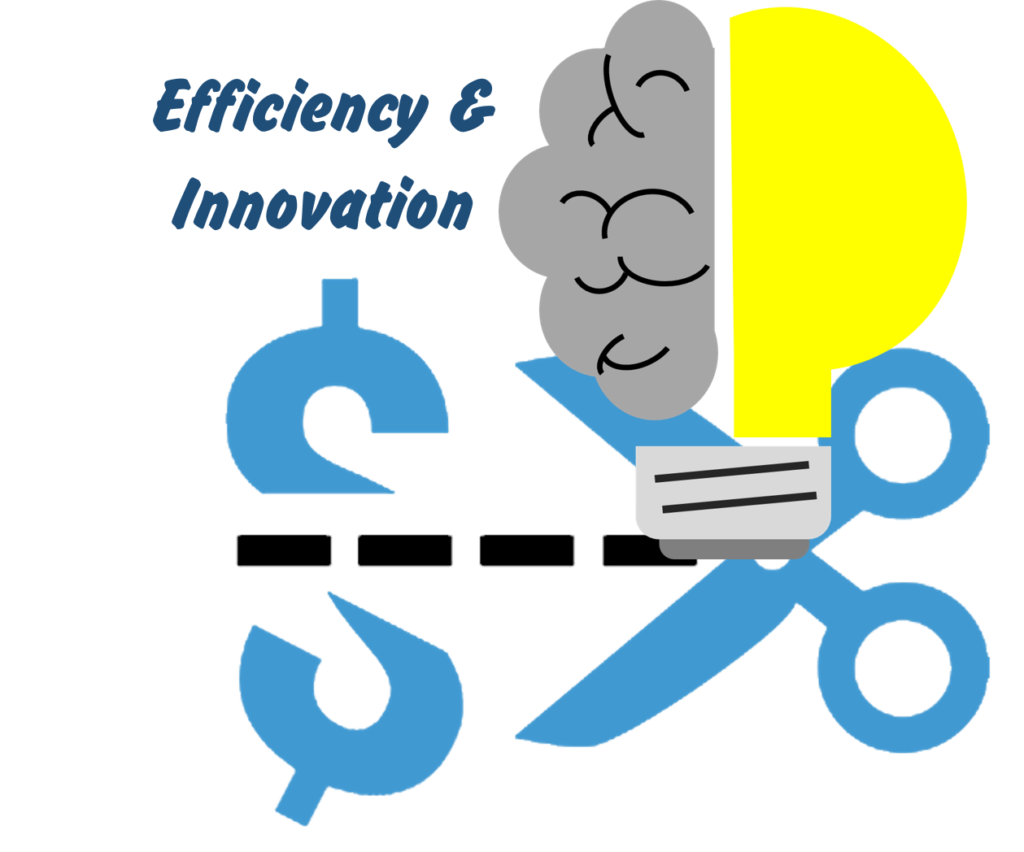Kraft-Heinz’ recent failed attempt to purchase Unilever for $143 billion dollars is unlikely to be the last news of mergers and acquisitions in the consumer packaged goods (CPG) sector. According to Keith Loria (@Freelancekeith), “When Kraft Heinz released its latest earnings report [in mid-February], industry analysts were somewhat surprised that there was no news of an acquisition in the works. When details started to emerge about its attempt to purchase Unilever, not many were shocked at its effort to grow.” So the news about its desire to acquire Unilever was not a surprising. Kraft-Heinz is owned by two well-known investment groups, the Brazilian private equity group 3G Capital Partners LP, led by former professional tennis player Jorge Paulo Lemann, and American-based Berkshire Hathaway, headed by Warren Buffett. The failed attempt to buy Unilever demonstrates that neither 3G Capital nor Berkshire Hathaway has lost its expansionist appetite. Shortly after the Kraft-Heinz merger a few years ago, I wrote:
“Although the products manufactured by the Kraft Heinz Co. are best known in North America, the global implications of the merger are worth discussing. Warren Buffett is on record about 3G Capital stating, ‘These guys have global ambitions.’ Of course, Buffett’s own ambitions are just as large, which is why Berkshire Hathaway has teamed with 3G Capital on each of its past three large food deals. Their ambitions go beyond owning international corporations. They want to sell their products around the world as well. Inevitably global ambitions lead to extended and more complex supply chains.”[2]
Supply chain complexity is one reason CPG companies should invest in cognitive computing platforms. Cognitive computing systems can provide the hyper-efficient consumer insights, category management and supply chain optimization capabilities that allow leading CPG firms to be both cost leaders and provide high service levels to their retail partners and consumers. Secondly, cognitive computing technologies can semantically deal with many of the ambiguous policies and regulations associated with trans-national operations — which also helps to reduce complexity. A third reason to invest in cognitive computing is cost savings. The sector is enormously competitive and margins are thin. Cognitive computing can help dramatically increase operational efficiencies.
A fourth reason is to bring a new scientific and data-driven approach to enhancing innovation. Cognitive platforms can help speed up innovation through Design of Experiment (i.e., they can simulate an innovation a priori to determine its efficacy. In many cases, innovation dollars are the first resources to disappear when CPG companies look to cut costs in order to increase profits. Generally, that is not a good bargain. As I’ll explain below, cognitive computing platforms can help create hyper-efficiencies that save money without having to sacrifice innovation.
The Importance of Innovation to Long-term Success
The business world is changing so rapidly companies have to innovate in order to stay relevant. Innovation budgets are often the first to be reduced when cost-cutting is called for since such activities don’t result in immediate returns on investment. As noted above, I believe cognitive computing platforms, like the Enterra® Enterprise Cognitive System™ — a platform that can Sense, Think, Act and Learn® — can help reduce costs and increase innovation by leveraging hyper-efficiencies. Cognitive technologies are relatively new; and, like most new things, there is some hesitance to adopt it. Kristina McElheran (@k_mcelheran), an assistant professor of strategy at the University of Toronto, observes, “Market leaders have many advantages when it comes to adopting new technologies. They have the benefit of size, which can generate economies of scale. They have experience. They sometimes have dedicated technical staff to help them through implementations better and faster than others. Nonetheless, we do not always see them leading the charge to embrace new technologies.”[3] She then asks, “Why is that? Why do some companies adapt and flourish more quickly than others in the face of technological change?” Good questions.
From her studies, she concludes, “The clear message for business leaders is to take a wider view of their market landscape in order to avoid flawed assumptions about the benefits and challenges of new digital technologies. And there’s a lot at stake. If the largest, most successful companies have significant exposure to customers who are technology laggards, smaller companies may seize new opportunities to leapfrog their competitors through B2B process innovation.” In other words, remaining innovative is a matter of survival. As I explain below, cognitive technologies can help businesses in many areas, including innovation.
The Value of Cognitive Computing in Today’s Business Environment
To achieve efficiencies and increase innovation, companies (be they leaders, acquirers or survivors) need to invest in what I refer to as a Cognitive Value Chain™. A Cognitive Value Chain is one that takes a holistic view of the business landscape and the ecosystem in which today’s global businesses must survive and takes actions to create value. As the term suggests, a Cognitive Value Chain is empowered by cognitive computing capabilities. Cognitive computing is capable of taking into consideration many more variables than traditional computing systems, which means that analysis is more complete. In addition, by combining Semantic Reasoning (i.e., artificial intelligence, machine learning, natural language processing, and ontologies) with Computational Intelligence (i.e., advanced mathematics), cognitive computing systems can generate optimized solutions and actionable insights (including predictive analytics) that have been previously unobtainable. These capabilities combine to provide CPG enterprises with three crucial benefits:
1. A hyper-efficient operating platform enabling them to be global cost leaders.
2. The capability to generate systemic insights helping them understand key innovation drivers and allowing them to perform market entry analyses.
3. The ability to execute insights through an autonomous System of Insights and Actions™ in order to capitalize on market opportunities and mitigate risk.
The efficiencies created by a hyper-efficient cognitive platform provides more resources for innovative activities which, in turn, are made even more affordable by the platform since they can be generated, tested, and made ready for production in record time. As noted above, cognitive platforms can leverage Design of Experiment to predict the efficacy of a specific innovation. K. Sundararajan (@ksundar_00), from iSixSigma, explains, “Design of experiments (DOE) is a systematic method to determine the relationship between factors affecting a process and the output of that process. In other words, it is used to find cause-and-effect relationships. This information is needed to manage process inputs in order to optimize the output.”[4] In the case of innovation, DOE can be used predict how effective —and, even, how well received — a specific innovation may be.
The third benefit — the ability to take advantage autonomously of emerging marketing opportunities — can also generate additional sales and profits. In its Fifth Annual Technology Trends report, Deloitte Consulting analysts conclude, “For organizations that want to improve their ability to sense and respond, cognitive analytics can be a powerful way to bridge the gap between the intent of big data and the reality of practical decision making.”
Sandeep Raut (@rautsan), Director for Digital Transformation in Syntel, writes, “Computers can capture, move, and store the data, but they cannot understand what the data mean. Thanks to Cognitive Computing, machines are bringing human-like intelligence to a number of business applications.”[5] Beverley Head (@BeverleyHead) adds, “Cognitive computing will usher in a new wave of change, giving organizations the power to gain insights and make decisions from vast amounts of data. … These new systems will begin to replace the programmable computers we have known since the 1940s. Instead they will use natural language recognition and machine learning to discover new insights from vast amounts of unstructured data, at a speed never before possible.”[6] Gartner analysts agree smart machines will bring tremendous value to the business world. Susan Tan, Research Vice-President at Gartner, states, “Smart machines will profoundly change the way work is done and how value is created. From dynamic pricing models and fraud detection to predictive policing and robotics, smart machines have broad applicability in all industries.”[7] It is little wonder Accenture analysts conclude cognitive computing will provide the “ultimate long-term solution” for many business challenges.[8]
Summary
The Consumer Packaged Goods sector is going to remain extremely competitive in the years ahead. Businesses in that sector are going to be tested by both competitors and consumers; which means only companies that can optimize their operations and keep up with the changing retail environment will survive and thrive. Companies can’t afford to stop innovating as a result of cost-cutting efforts. By leveraging the capabilities of a cutting edge cognitive computing platform, companies can now do both — and a lot more as well.
Footnotes
[1] Keith Loria, “Will Kraft Heinz’s unsuccessful dealmaking with Unilever inspire future M&A?” Food Dive, 21 February 2017.
[2] Stephen DeAngelis, “Kraft/Heinz Merger Highlights Need for Cognitive Value Chain™,” Enterra Insights, 20 August 2015.
[3] Kristina McElheran, “Taking a Value-Chain Perspective on Innovation,” MIT Sloan Management Review, 25 October 2016.
[4] K. Sundararajan, “Design of Experiments – A Primer,” iSixSigma.
[5] Sandeep Raut, “What is Cognitive Computing?” Customer Think, 19 September 2016.
[6] Beverley Head, “Cognitive computing: man and machine in partnership,” The Australian Financial Review, 12 August 2016.
[7] Cliff Saran, “Smart machines primed to accelerate across business,” ComputerWeekly, 16 December 2016.
[8] “From Digitally Disrupted to Digital Disrupter,” Accenture, 2014.





